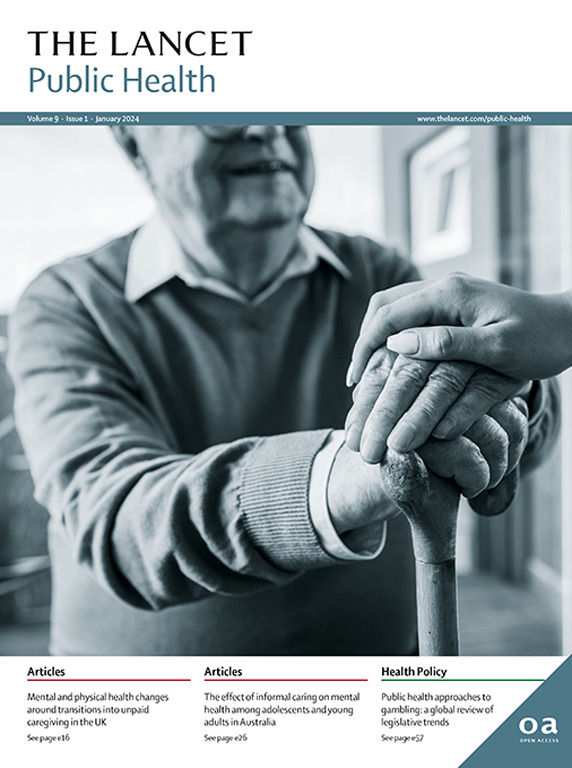Cancer screening inequities and people with intellectual disabilities—what should we do to close the gaps?
IF 25.4
1区 医学
Q1 PUBLIC, ENVIRONMENTAL & OCCUPATIONAL HEALTH
引用次数: 0
Abstract
Evidence from electronic health records is transforming what we know about the health inequalities experienced by people with disabilities. In The Lancet Public Health, Amina Banda and colleagues produced another excellent example of this approach, using large-scale data from the Netherlands to demonstrate that participation in cancer screening programmes is around 20% lower for people with intellectual disabilities than in the general population.1 The inequities were remarkably similar across the breast, cervical, and colon cancer screening programmes, even though the programmes are different in terms of targeted age and gender, and the demands placed on the participant. The findings are also consistent with reports from elsewhere, despite the divergence in how the screening programmes operate and target participants in different countries.2 This Article also adds a piece to the puzzle of explaining why people with intellectual disabilities are dying earlier than the general population.3求助全文
约1分钟内获得全文
求助全文
来源期刊

Lancet Public Health
Medicine-Public Health, Environmental and Occupational Health
CiteScore
55.60
自引率
0.80%
发文量
305
审稿时长
8 weeks
期刊介绍:
The Lancet Public Health is committed to tackling the most pressing issues across all aspects of public health. We have a strong commitment to using science to improve health equity and social justice. In line with the values and vision of The Lancet, we take a broad and inclusive approach to public health and are interested in interdisciplinary research.
We publish a range of content types that can advance public health policies and outcomes. These include Articles, Review, Comment, and Correspondence. Learn more about the types of papers we publish.
 求助内容:
求助内容: 应助结果提醒方式:
应助结果提醒方式:


